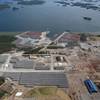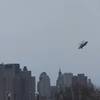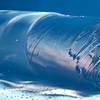Artic Shipping Conference to be Held in April
This covers port developments, energy and mining projects, the Arctic Council's marine shipping assessment, international agreements and management plans for the Northern Sea Route and Barents Sea. Speakers include government representatives, industry leaders and academics. Day 2 features design and propulsion requirements for ships ranging from dry bulk and LNG carriers to shuttle tankers and nuclear icebreakers. Other topics include the design impact of environmental regulations an engineering solutions to assure ice strength. A panel of port directors will discuss the operational challenges of ice conditions, including the effect on cargo handling and demand for icebreaker assistance. The day ends with a choice of roundtable discussions on subjects such as ice navigation, emergency response and emissions reduction. Day 3 opens with a session on risk management, crewing and navigation. This includes panel analysis of Polar Class unified requirements, a review of icebreaking operations on the Northern Sea Route and a debate on standards for crew training and ice navigation, with input from owners, class societies, national administrations and academies. The session also examines forecasting and ship routing through ice, highlighting the role of pilots and the use of satellites, radar and ice information services in the Arctic, Baltic and Great Lakes. The final conference session returns to technical aspects of ice operations. Featured topics include the use of low speed two-stroke engines for Ice class vessels and the importance of choosing the correct coatings for different hull areas when operating in extreme conditions.










